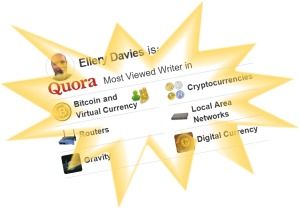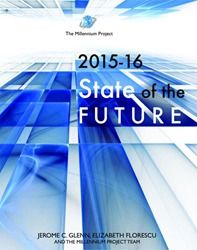Feb 1, 2016
The Coming Era of Virtual Reality
Posted by Philip Raymond in categories: augmented reality, disruptive technology, entertainment, innovation, thought controlled, virtual reality
A Lifeboat guest editorial
 Richelle Ross is a sophomore at the University of Florida, focusing on statistics and data science. As a crypto consultant, she educates far beyond the campus. Her insight on the evolution and future of Bitcoin has been featured in national publications. Richelle writes for CoinDesk, LinkedIn, and Quora, providing analysis on Bitcoin’s evolving economy.
Richelle Ross is a sophomore at the University of Florida, focusing on statistics and data science. As a crypto consultant, she educates far beyond the campus. Her insight on the evolution and future of Bitcoin has been featured in national publications. Richelle writes for CoinDesk, LinkedIn, and Quora, providing analysis on Bitcoin’s evolving economy.
In 2003, I remember going to see my first IMAX 3D film, Space Station . My family was touring NASA at Cape Canaveral Florida. The film was an inside view into life as an astronaut enters space. As the astronauts tossed M&Ms to each other in their new gravity-free domain, the other children and  I gleefully reached our hands out to try and touch the candy as it floated towards us. I had never experienced anything so mind-blowing in my 7 year life. The first 3D film was released in 1922. Yet, surprisingly, flat entertainment has dominated screens for in the 9½ decades that followed. Only a handful of films have been released in 3D—most of them are animated. But now, we are gradually seeing a shift in how people experience entertainment. As methods evolve and as market momentum builds, it promises to be one of the most groundbreaking technologies of the decade. I foresee Virtual Reality reaching a point where our perception of virtual and real-life experiences becomes blurred—and eventually—the two become integrated.
I gleefully reached our hands out to try and touch the candy as it floated towards us. I had never experienced anything so mind-blowing in my 7 year life. The first 3D film was released in 1922. Yet, surprisingly, flat entertainment has dominated screens for in the 9½ decades that followed. Only a handful of films have been released in 3D—most of them are animated. But now, we are gradually seeing a shift in how people experience entertainment. As methods evolve and as market momentum builds, it promises to be one of the most groundbreaking technologies of the decade. I foresee Virtual Reality reaching a point where our perception of virtual and real-life experiences becomes blurred—and eventually—the two become integrated.
Ever since pen was put to paper, and camera to screen, audiences have enjoyed being swept into other worlds. For those of us “dreamers” being able to escape into these stories is one way we live through and expand our understanding of other times and places—even places  that may not be accessible in our lifetimes. Virtual reality is the logical progression and natural evolution of these experiences.
that may not be accessible in our lifetimes. Virtual reality is the logical progression and natural evolution of these experiences.


 relevant to my role on the New Money Systems board at Lifeboat. Here, then, is my reply to: “How can governments ban Bitcoin?”
relevant to my role on the New Money Systems board at Lifeboat. Here, then, is my reply to: “How can governments ban Bitcoin?”


 In Jurassic Park, a novel devoted to the scare of genetic engineering when biotech was new in the 1990s, the character of John Hammond says:
In Jurassic Park, a novel devoted to the scare of genetic engineering when biotech was new in the 1990s, the character of John Hammond says:







